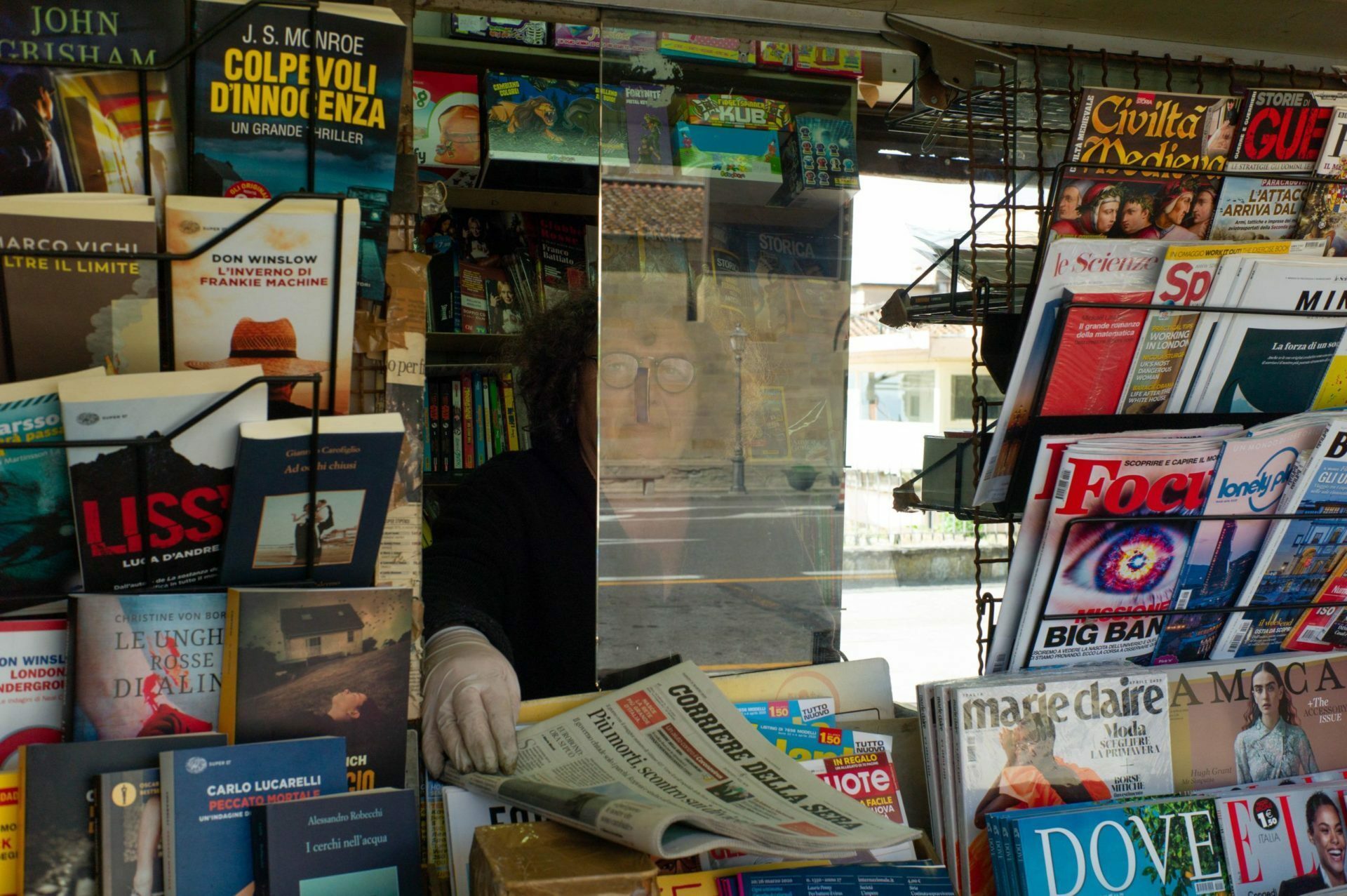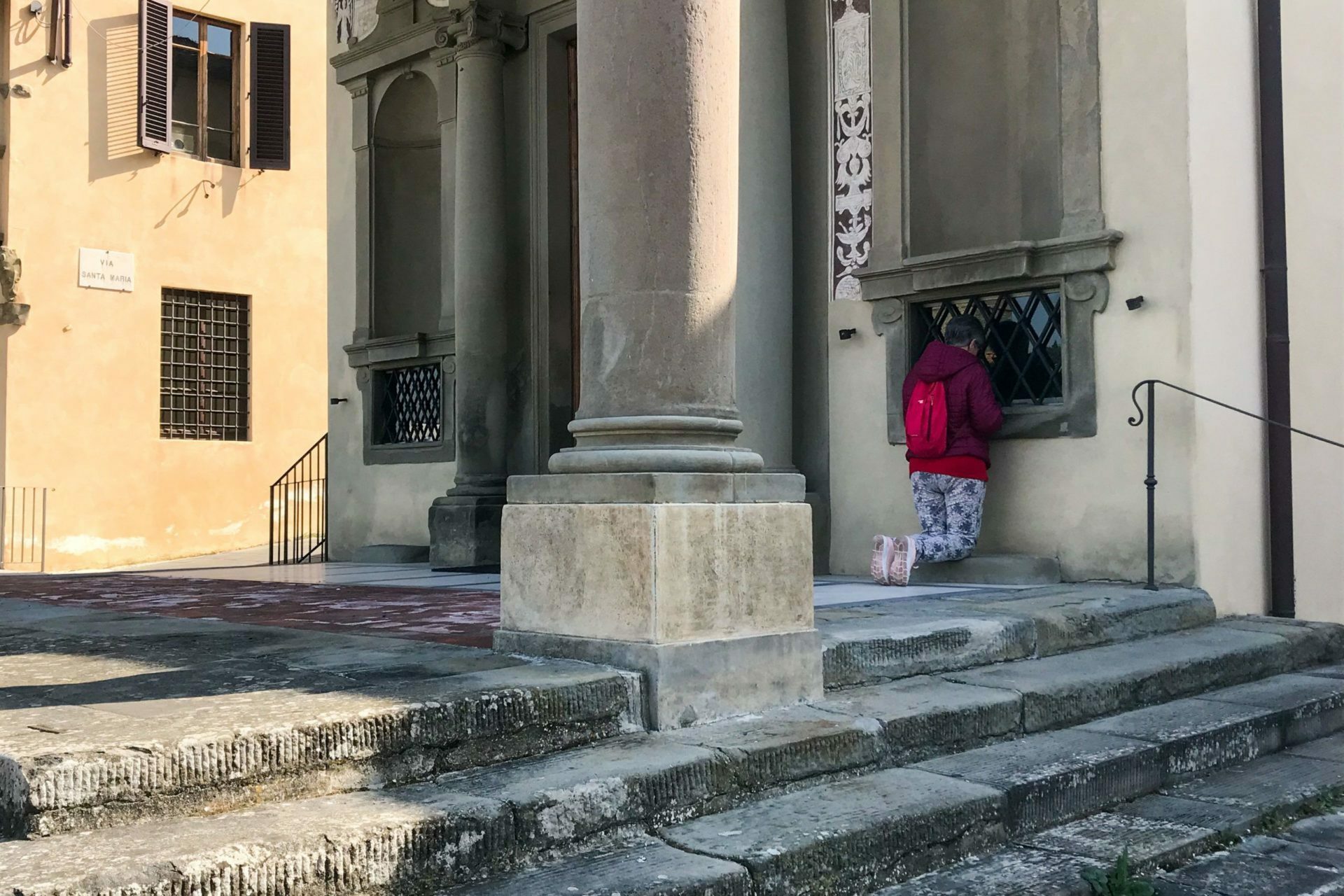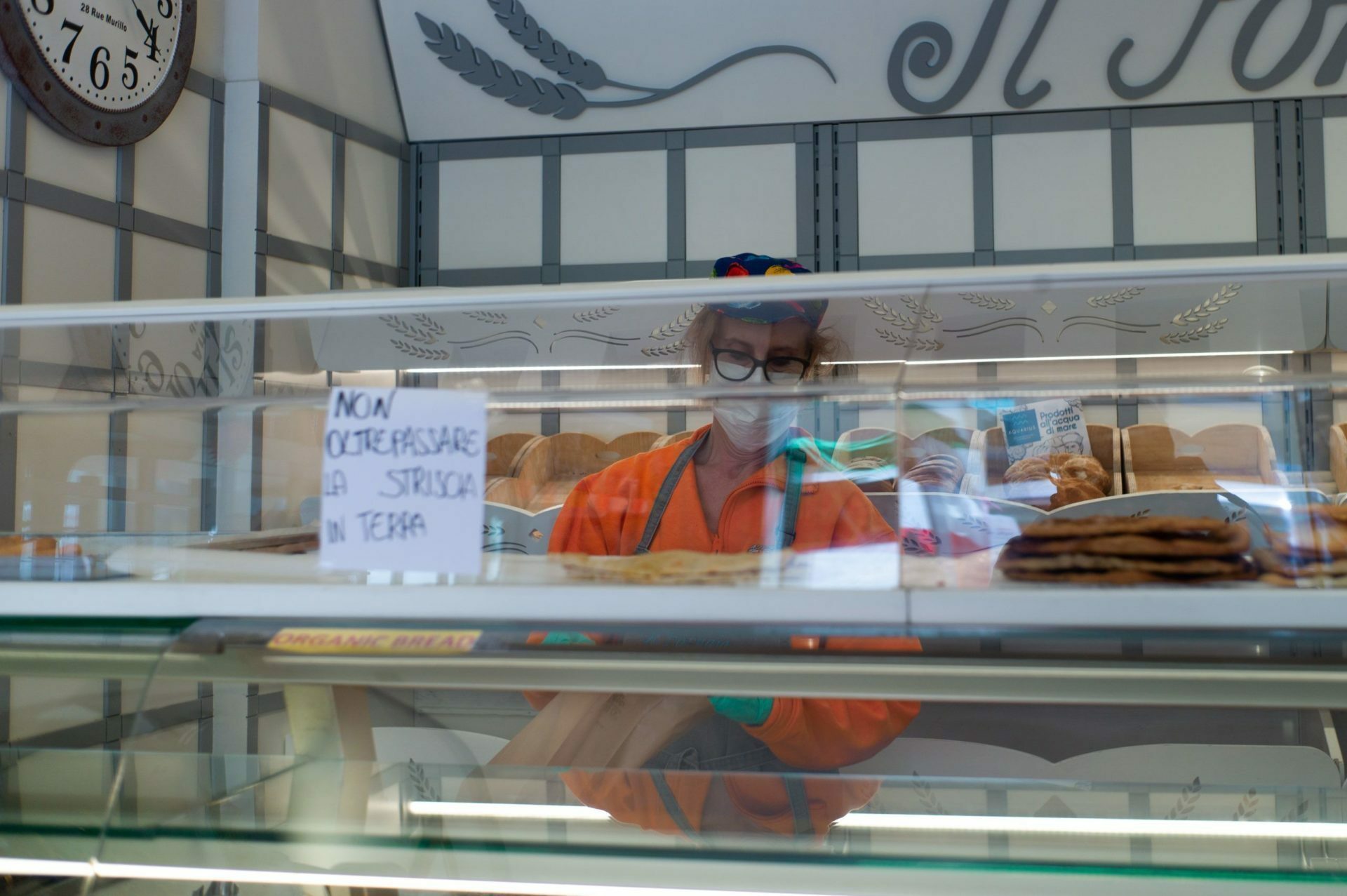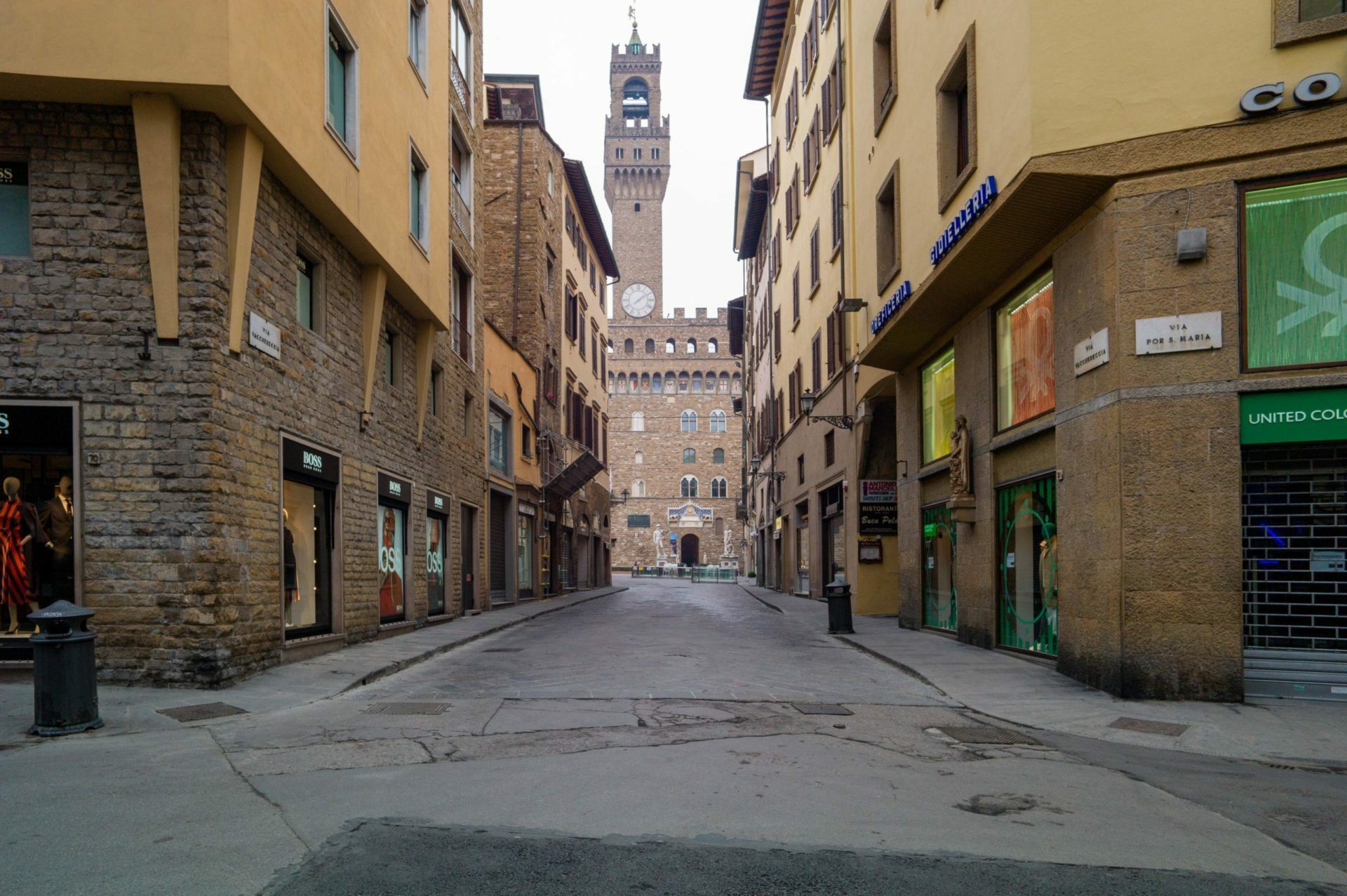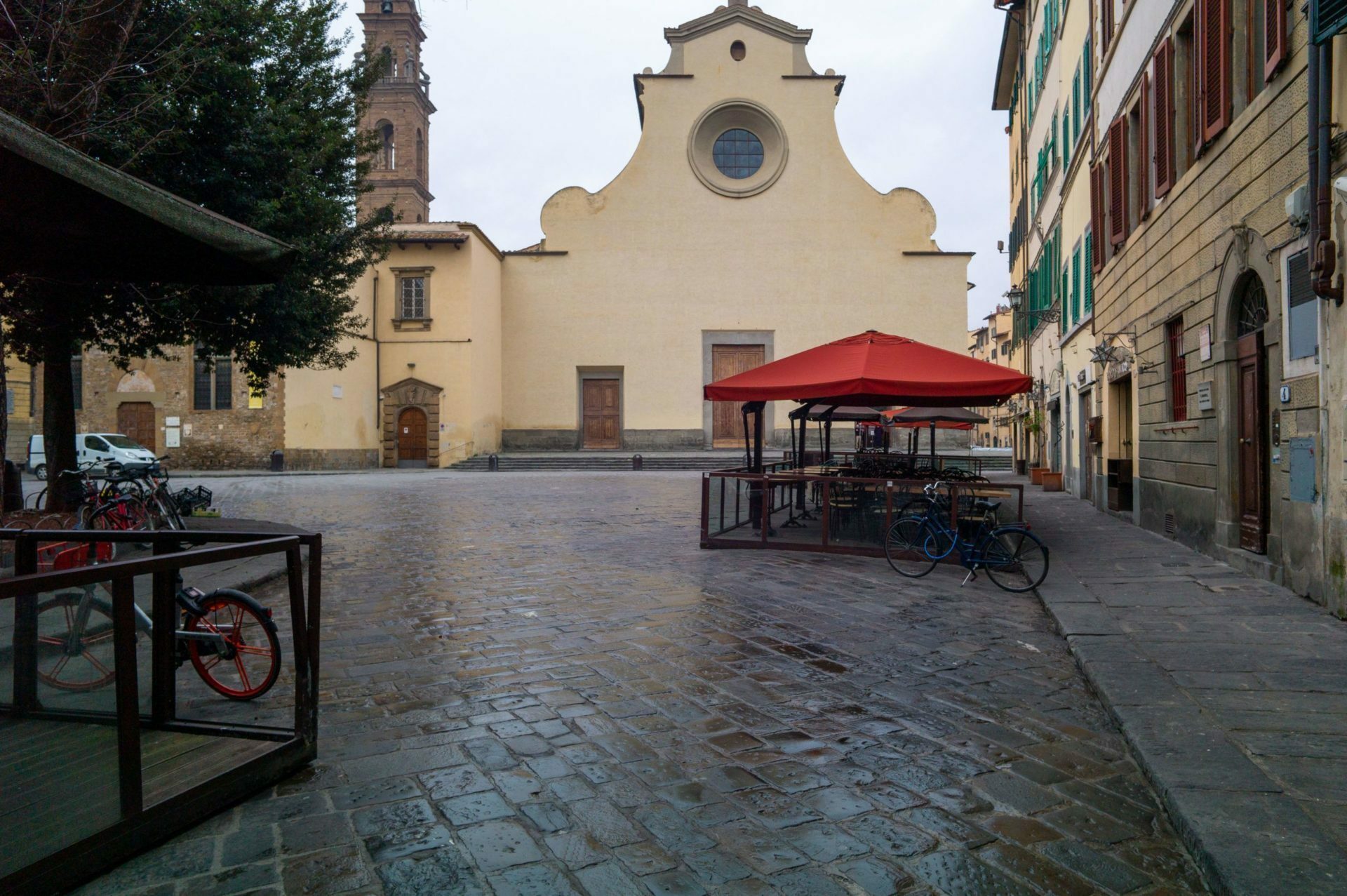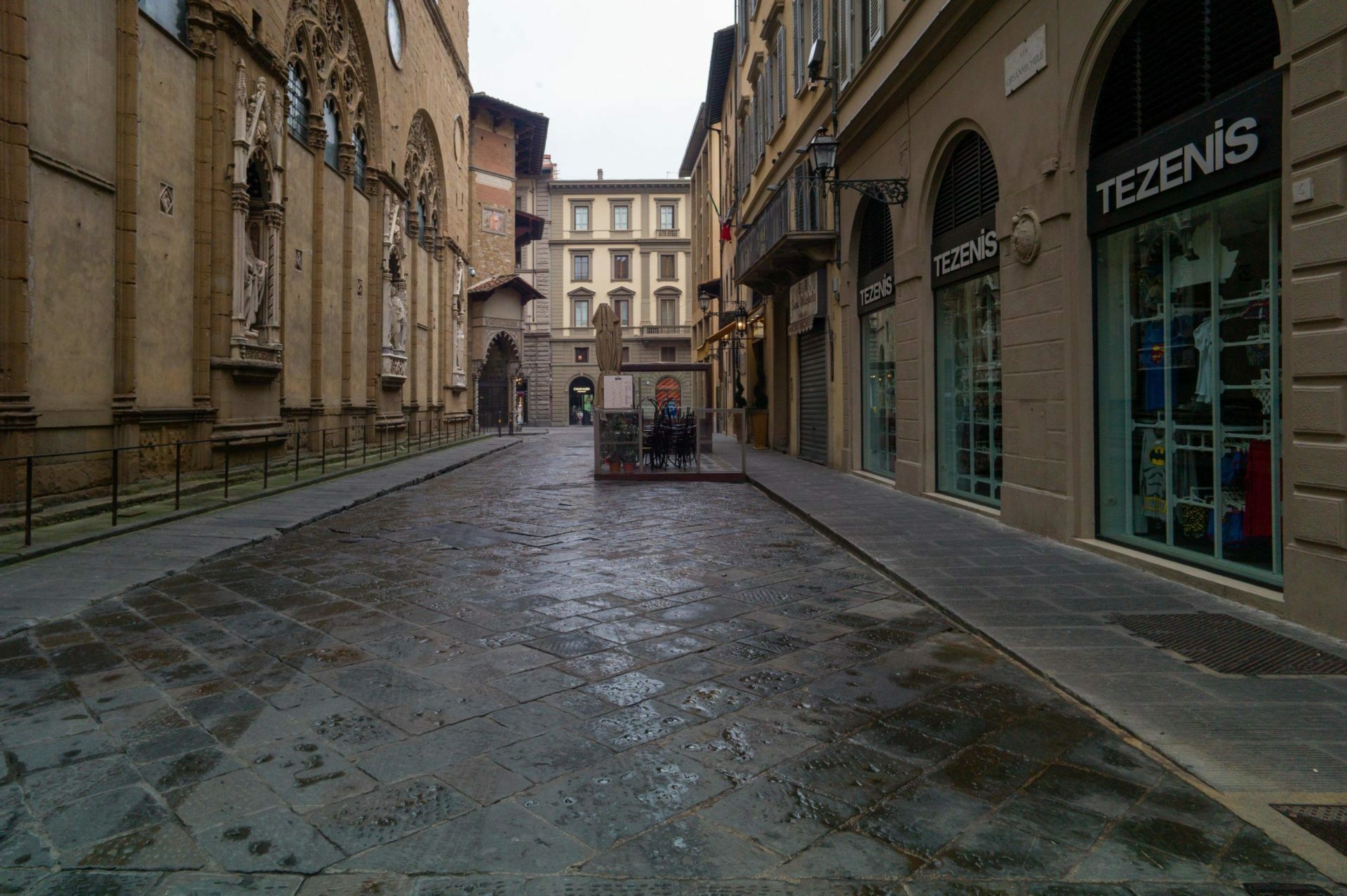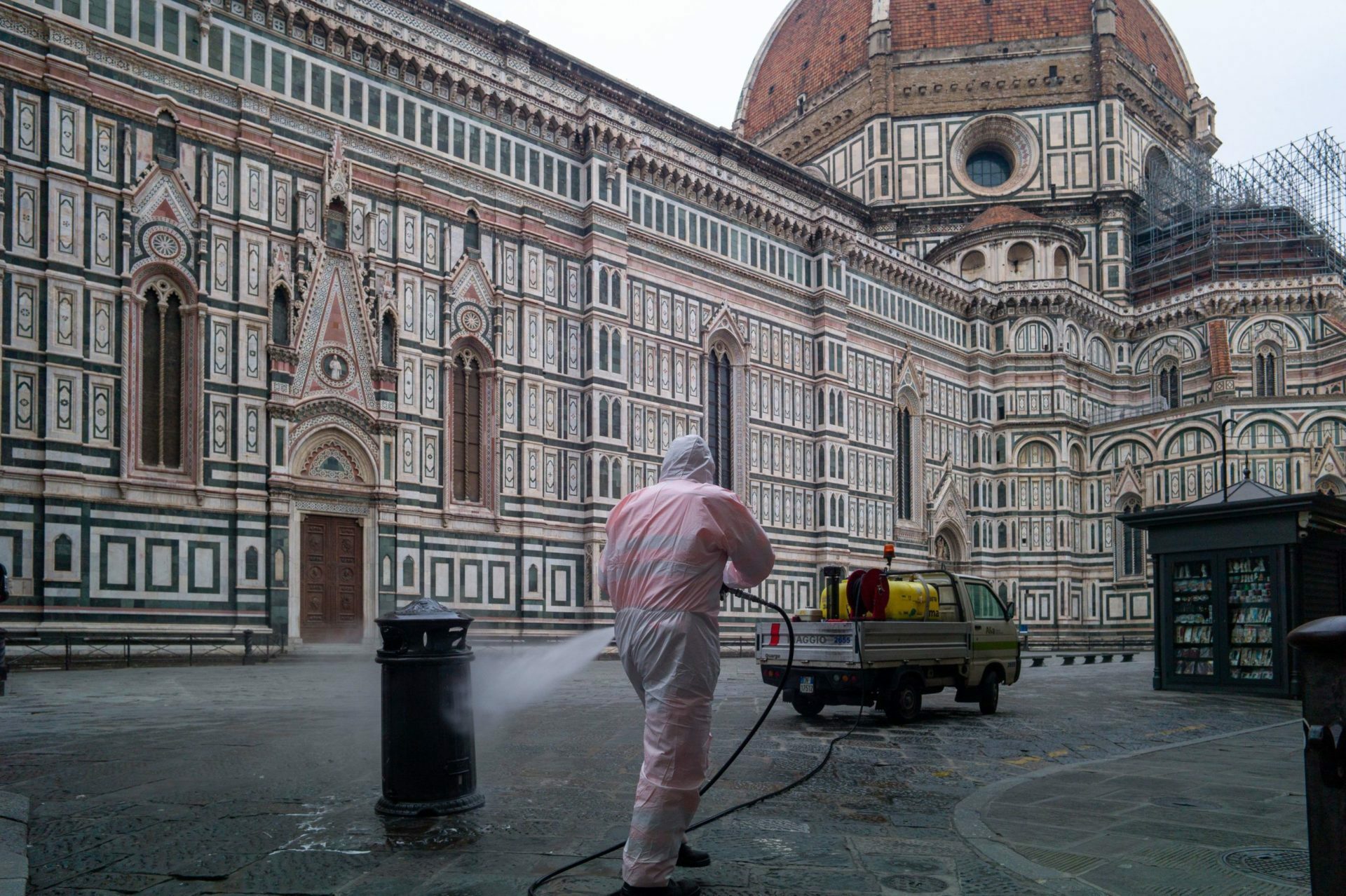Text, photos and videos: Damiano Fedeli
For a few days, the civil protection car that daily invites everyone to stay at home with its loudspeakers has not passed on the streets of Fiesole, on the hills above Florence. The concept is now clear and here in Tuscany, as in the rest of Italy, everyone is living with a mixture of anxiety and hope for the so-called „phase 2“.
Phase 2
That is, the period of slow transition towards the new normality imposed by the coronavirus. A phase that started on May 4th and that are bringing a series of staggered reopenings: first, manufacturing companies (starting with those mainly focused on export), construction sites, wholesale trade.
Slow transition
Then, from May 18th, shops, exhibitions and museums. Places and professions most at risk for their close contacts with customers will reopen only at the beginning of June: bars, restaurants, hairdressers. Everywhere, of course, the physical distance measures will be stringent and rigid: at least one meter from other people, face masks (even when visiting relatives, a possibility that until now was prohibited). Shops must have sanitizing gel, distinct entry and exit paths, staggered entrances (one person at a time in the shops up to 40 square meters).
All this to ensure that infections don’t go up too fast, and always ready to close again „in a timely manner if the curve of infections becomes critical. We have set up a mechanism to allow us to intervene promptly”, Prime Minister Giuseppe Conte stated. For a few more weeks people in Italy still need a self-certification to move, a document to be presented to the police in case of checks to demonstrate that the movement – possible from May 4th within the borders of the region, until then only in the same municipality – is justified from one of the following reasons: work, health and, starting with phase 2, visit to relatives.
Face masks, whose effectiveness at the beginning of the infection has long been debated in Italy, will be mostly mandatory. Some regions, such as Lombardy and Tuscany, have already made them mandatory every time people go out. Tuscany bought a stock of masks for all its citizens, distributing them from house to house thanks to voluntary associations. Other masks will be available for free in pharmacies, presenting the health card.
The way backwards
Italy is slowly starting to go backwards on the path that led to its total closure. At the beginning of the crisis (March 8th – while the first case in Italy was documented on February 21st) only Lombardy and some provinces between Piedmont, Emilia-Romagna, Veneto and Marche were closed.
#iorestoacasa
Then, from March 9th – with the #iorestoacasa, I stay at home, measure – the entire Italy was locked down. Two days later a decree tightened further the measures, closing all the shops but the food ones.
The escalation
On March 22nd, people were finally prohibited leaving their municipality of residence. An escalation due to the relentless advance of the contagion that, at the beginning of May, has infected more than 200 thousand people in Italy, killing 30 thousand, with some areas, such as Lombardy, affected in a particularly violent way. Caravans of military trucks that took coffins from Bergamo bringing to the crematoria in the rest of Italy made an impression all over the world.
Now, slowly Italy goes back. Not to the previous situation, of course: for example, the opening of borders and the return of tourists from abroad remain a great unknown factor. Tourism is a voice that contributes to the 13% of national GDP. More than 94 million foreigners came to visit Italy last year, distributed among art cities, mountains, countryside and seaside resorts. Summer season 2020 is considered lost. At most, there will be some domestic tourism. Certainly, concerts, festivals and outdoor events will be canceled this summer.
These 56 days of lockdown will change Italy forever. „We have been the luckiest generation in the history of humanity“, wrote the writer Antonio Scurati in Corriere della Sera newspaper referring to the generation of fifty-year-olds who have not experienced hunger or war. Now „we are in line for the bread“.
The importance of certain workers who suddenly found themselves under enormous pressure jumped to everyone’s eyes. That’s the case of supermarkets workers, for example. „At the beginning we didn’t expect all this situation, but suddenly we found ourselves, let’s say, in the second line, after doctors and health professionals”, Marco Pietrini, director of the small Coop supermarket in Fiesole, says. People enter supermarkets in a row, staggered, at a safety distance. “We Italians are very communicative and these restrictions have changed the way we are together”, he underlines. Supermarket workers’ job has increased in intensity, among products taken by storm (such as disinfectants for home and hands or yeasts and flours for making pasta, pizza and desserts at home) or the number of customers inside the shop to be controlled.
The centers of the cities with their iconic monuments are desolately empty. Also churches have remained empty, even during the Easter holidays. The images of the Pope alone in a deserted Piazza San Pietro in Rome have traveled around the world. Now Italian bishops are protesting because in phase 2 the possibility of masses and religious services has not been scheduled yet. Funerals will be possible only from May, with a maximum of 15, distant, participants: the families of the many who have passed away didn’t have even the comfort of a last farewell to their loved ones. Also the life of priests has changed. Don Roberto Pagliazzi, who is a parish priest in Fiesole not too comfortable with technology, has been helped and has now opened a Youtube channel where he celebrates mass every day.
An axis in Europe
An open wound will be the incredible economic damage that the coronavirus crisis will leave behind. The government launched a series of support measures in March, including layoffs and extraordinary support for self-employed workers. It provided also state-guaranteed credit for businesses. The Italian political debate has been marked by criticism from right wing populist forces, such as the Lega and Fratelli d’Italia, who are saying their ostinate no to the ESM, the European Stability Mechanism, the fund that help countries in financial distress.
On the other hand, the Government, with its majority composed by Five Stars movement and Democratic Party, has found an axis in Europe with countries such as France, Spain and Ireland, opposing countries such as the Netherlands and, to a lesser extent Germany, not in favor of the so-called “corona-bond”, with the mutualization of the debt needed to finance the recovery. After the European Commission President Ursula von der Leyen apologized for the „lack of solidarity with Italy“ on April 3rd, the European Council defined a 1,500 billion recovery fund. The ball is now in the court of the European Commission.
Certainly, now even the middle class begins to show signs of suffering. Solidarity is not lacking. For example the so-called „baskets of solidarity“ have sprung up in many cities and towns allover Italy. Those who can, are invited to leave food products, such as pasta or cans of tuna or tomatoes. Those who need, can take them for free. Voluntary associations managing food banks are dealing these days not only with the families they already knew, but with an enlarged audience of new poors.
Alessandro Gori of Misericordia, an association of public assistance in Compiobbi, near Florence, says: “Up to now we have followed a smaller number of people, but now they have increased. We have to respond to a broader number of families“. „Job losses, layoffs, closed shops bring a lot of economical difficulties in homes“, Fabrizio Ulivieri, president of the Fratellanza Popolare in Caldine, another volunteer association in the Florentine area, adds.
“We asked people to contact us anonymously. Many of these families are not used to call Social services. They can be embarrassed”.
The slogan that Italy has given itself, writing it under a rainbow in dozens of banners hanging on the balconies of the whole country is „Everything will be fine“. A Sardinian girl was more realistic. Next to her rainbow she wrote: „I don’t think it will be all right, I wrote it only because my teachers and my parents wanted it”.








